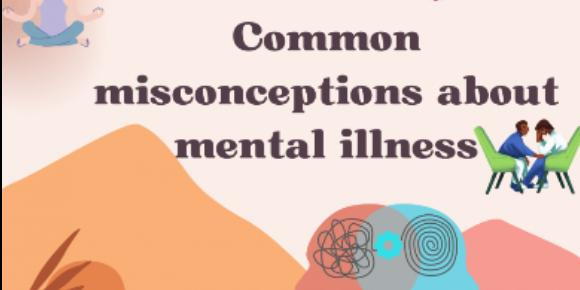
Although mental health awareness continues to increase, there are still many misconceptions and myths associated with it. In order to increase awareness and decrease stigma, it’s important to recognize the common myths and misconceptions that are based off of assumptions and old-fashioned ways of thinking. (1) “Mental health problems are uncommon”. The World Health Organization (WHO) estimated in 2001 that 1 in 4 people will be affected by neurological or mental disorders at some point. Depression is one of the most common mental health disorders, which affects more than 264 million people worldwide. There is also a study that shows the number of adults experiencing depression has tripled during and after the COVID-19 pandemic. (2) “Those with any mental health issues cannot work or hold down a job”. Those with a very severe mental health condition may not be able to carry out regular work, however, the majority of people with mental health struggles and conditions have the ability to be as productive as those without mental health struggles. (3) “Mental health struggles or conditions are a sign of weakness”. Mental health conditions are illnesses, not a description of one’s character. In fact, fighting a mental health struggle or condition is actually a sign of great strength. Being able to face a struggle and push through it is a sign of resiliency. By putting an end to the myths, misconceptions, and stigma surrounding mental health struggles, we can continue to advocate for those struggling with their mental health. Spreading awareness and gaining knowledge of the misconceptions is key.
